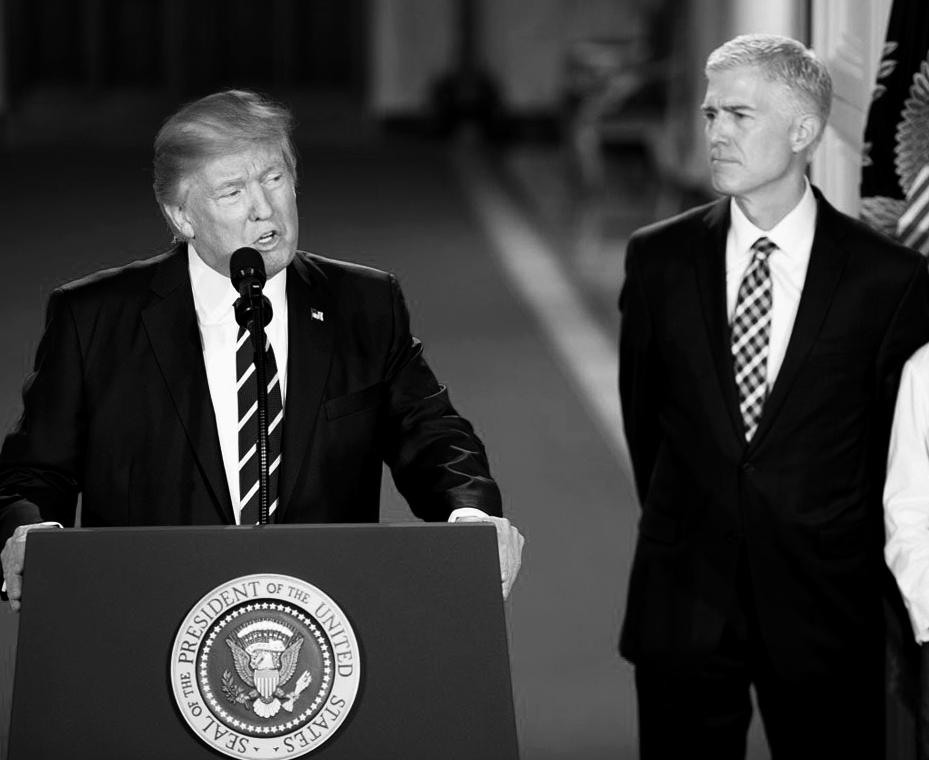The filibuster fallout: “Nuclear option” points to an ideological divide which extends beyond that of the Senate

By Hannah Ritner

There is no doubt that voters have polarized on the political spectrum in the last several years, specifically in the most recent election cycle. But this increasing partisan split between Democrats and Republicans may be sending reverberations to all branches of government — as suggested by Republicans opting to “go nuclear” on 6 Apr.
For a couple of weeks now, Democrats have promised to obstruct the nomination of Neil Gorsuch for Supreme Court Justice by using the filibuster. In order to filibuster, 41 votes were required. Democrats followed through with this option, and in response, the Republican senate majority opted to use the nuclear option.
The filibuster in the context of the Supreme Court Justice nomination is the ability of the minority party in the Senate (which is currently the Democrats) to block the appointment of Gorsuch by obtaining 41 votes. The Republicans opted to use the nuclear option, which is the ability of the majority party to change voting confirmation requirements from 60 to 51 in order to appoint Gorsuch.
Party-line voting pushed the nuclear option through the Senate when Republicans attained the 51 votes necessary to block the filibuster. This meant that Gorsuch could be confirmed on Friday, April 7 with a majority vote of 51 rather than a supermajority vote of 60. The Senate voted to approve Gorsuch 54-45.
Essentially, this decision cleared the path for Gorsuch’s appointment to the Supreme Court. While this may not seem an incredibly surprising decision, and to some extent it’s not, given the increasing partisan state, the impacts of the nuclear option are not to be underestimated.
According to the New York Times, traditionalists were opposed to the decision to use the nuclear option because it makes the Senate a more partisan body. Based on the current configuration of the branches of the U.S. government, the Senate has historically been a debate-friendly body that is more deliberate than the House of Representatives; it has also been a relatively bipartisan body in which senators have been willing to vote beyond party lines.
Yet, this decision to utilize the nuclear option, though not unprecedented, will likely further divide the body, leading to more gridlock.
This is dangerous for Democrats because it allows for more ideologically extreme judges — especially since Republicans hold the Senate majority at 52 representatives, and Democrats are in the minority at 48 representatives. Only 51 votes were needed to confirm Gorsuch, which is why this decision essentially handed Gorsuch the position. In this decision, any power the Democrats held in the Senate as the minority body has been overturned.
Many Republicans harbored hostile sentiments towards Democrats for using the filibuster block to obstruct Gorsuch’s appointment. The Democrats’ filibuster was dismissed as the result of backlash against Trump’s election into office. Yet, many Democratic senators cited Gorsuch’s voting record on worker’s rights as the main reason for their objection.
It is extremely hypocritical of the Republican party to criticize Democrats for utilizing the filibuster to block Gorsuch because just last year, they refused to even consider Merrick Garland, Obama’s nominee.
Historically, according to an article by the New York Times, Gorsuch has tended to rule in favor of employers in cases of workers’ rights violations. Furthermore, although he has not directly ruled on Roe v. Wade, he wrote, “The idea that all human beings are intrinsically valuable and the intentional taking of human life by private persons is always wrong.”
He’s essentially the ideal ticket Republican candidate, and has had a historically conservative voting record. He was pushed through as the Supreme Court Justice because a simple majority vote became the voting standard.
Using the nuclear option will likely further entrench the divide between Democrats and Republicans in the Senate. Given that Democrats hold the minority in this body, this is dangerous because it means that it will be more difficult to block more conservative proposals. Ultimately, this news is evidence of a deeply divided nation that is only getting further and further entrenched in this gridlock.
